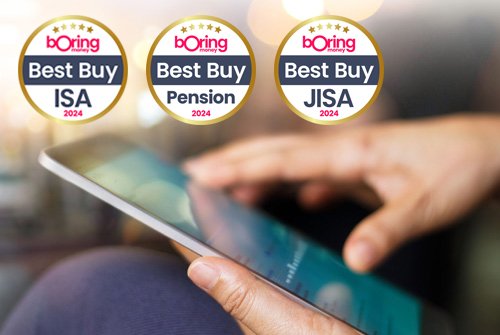Why should I invest?
People invest for all sorts of reasons, but one of the main reasons they invest is to make any spare money they might have work harder for them.
Money sitting in a bank is secure, but uncertain interest rates and inflation mean that it might not amount to much over time. While money that’s invested has the chance to potentially grow (of course it could fall in value too, but that's the risk of investing).






